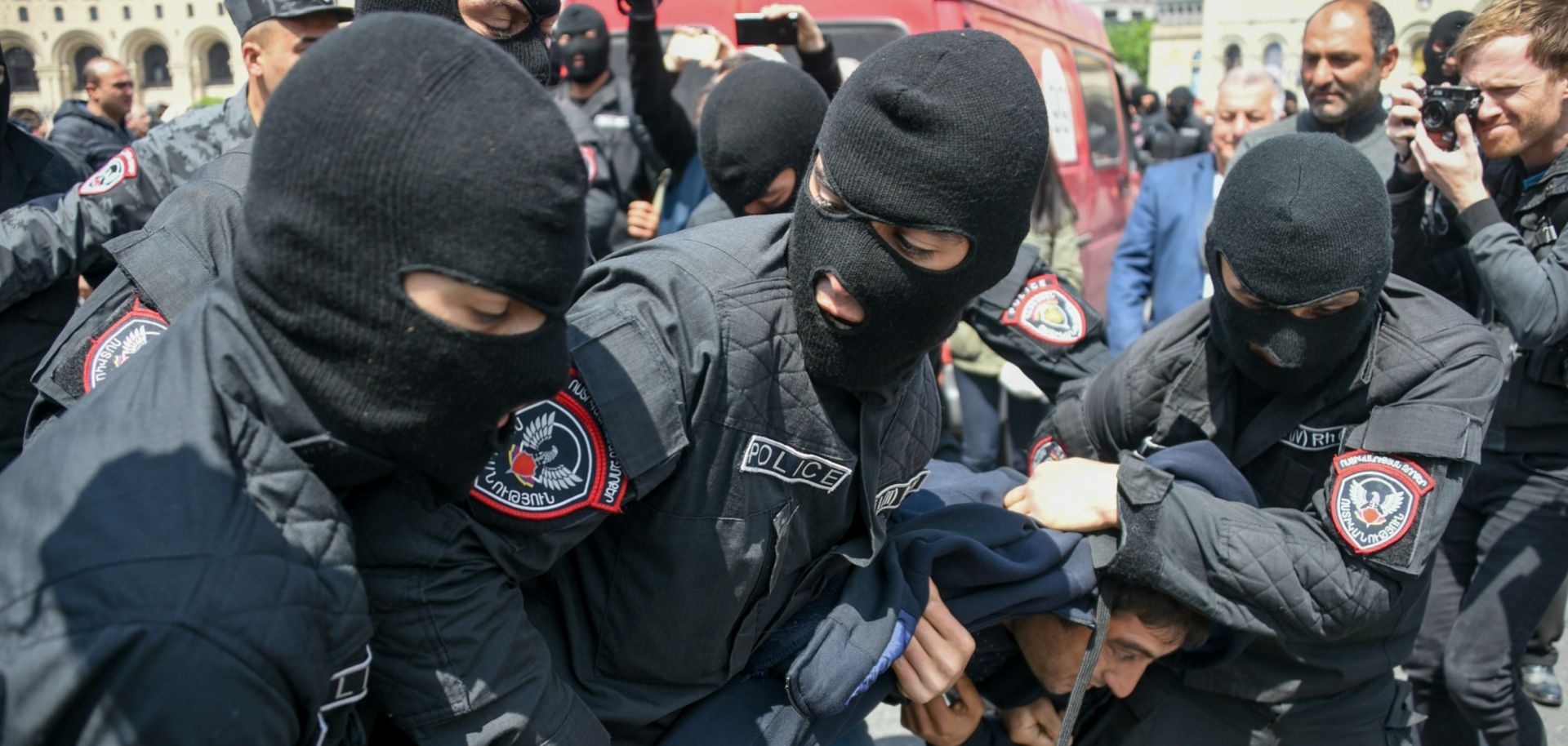ASSESSMENTS
What Armenia's Protests Mean for Russia
Apr 30, 2018 | 10:00 GMT

Armenian police arrest a man during a protest in Yerevan, the country's capital, on April 22, 2018. Protesters were rallying against the election of the former president to the post of prime minister.
(VANO SHLAMOV/AFP/Getty Images)
Highlights
- As the political crisis in Armenia continues to unfold, no external country is more key in shaping — and being shaped by — Armenia's political evolution than Russia.
- Russia serves as Armenia's main ally and security guarantor, but Moscow could have a lot to lose if the situation in the country goes awry.
- While Russia is unlikely to intervene in Armenia in a direct military sense — barring a major security crisis — the Kremlin is and will be active behind the scenes as it attempts to shape the political trajectory of the country.
Subscribe Now
SubscribeAlready have an account?
